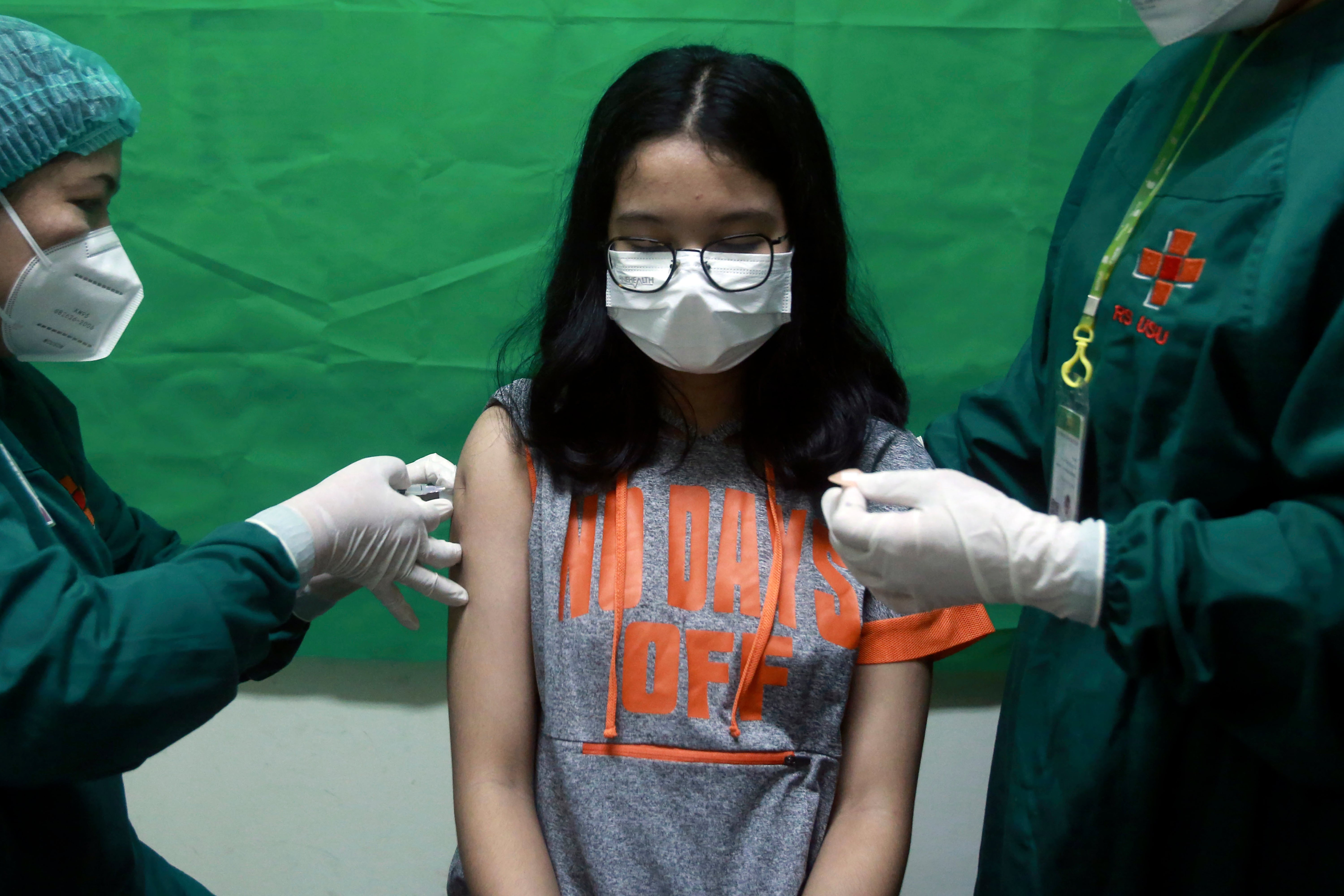Indonesia battles high child fatality rate amid Delta variant outbreak
Children now make up 12.5 per cent of total infections as the country’s health system is under extreme pressure from case surge

Your support helps us to tell the story
From reproductive rights to climate change to Big Tech, The Independent is on the ground when the story is developing. Whether it's investigating the financials of Elon Musk's pro-Trump PAC or producing our latest documentary, 'The A Word', which shines a light on the American women fighting for reproductive rights, we know how important it is to parse out the facts from the messaging.
At such a critical moment in US history, we need reporters on the ground. Your donation allows us to keep sending journalists to speak to both sides of the story.
The Independent is trusted by Americans across the entire political spectrum. And unlike many other quality news outlets, we choose not to lock Americans out of our reporting and analysis with paywalls. We believe quality journalism should be available to everyone, paid for by those who can afford it.
Your support makes all the difference.Indonesia is seeing a surge in child fatalities due to Covid-19, as the world’s fourth-most populous nation grapples with an overall spike in hospital admissions and deaths, reports showed.
The Indonesian Pediatric society reported that 100 children have died of coronavirus each week during the month of July. Children now make up 12.5 per cent of total infections, with many of them under 5, the society told the New York Times. The Indonesian Covid-19 Task Force’s recorded more than 700 deaths among children up to mid-July since the start of the pandemic.
The new data emerged amid a sweeping overall surge in Covid-19 death, which nudged Indonesia this month to overtake India and Brazil as the global epicentre of the pandemic with the highest number of daily infections.
The nation’s paediatric society has monitored the rise of cases among children each week since the beginning of July, as the authorities moved to tighten restrictions on community activities.
The government designed multi-tiered public activity restrictions (PPKM) to tackle the deluge and to support small businesses suffering from lockdown curbs. President Joko Widodo also promised to improve its testing and tracing and treatment efficiency.
“Three weeks of PPKM, we see the significant rise of child cases. In the first week, overall, there were 3,000-4000 new cases. In the second week, there were 5,000-7,000. And now we even have 17,000 cases per week,” Suara reported Aman Pulungan, chairman of Indonesian Pediatrics Society, as saying.
The spike in children’s cases coincided with the spread of the Delta variant, which has swept through many countries suffering from the slow vaccine rollout in Southeast Asia - including Malaysia, Thailand and Vietnam.
“It attacks viciously regardless of the age,” Tri Yunis Miko, an epidemiologist at the University of Indonesia, told The Independent.
“But the children’s condition has deteriorated as many of them did not receive sufficient treatment,” he said.
Hospitals were full this week due to the significant rise of overall cases, which forced many hospitals to prioritise patients with severe symptoms. Beds were not available when patients were admitted to the hospital, and many of them had to wait in overflow tents. Only a few hospitals in Indonesia are equipped to treat children infected with the virus.
“The low test rate was also seen as a critical factor in the delay of treatment of children”, Dicky Budiman, an epidemiologist at Griffith University, said.
Since the beginning of July, the country’s Health Minister Budi Gunawan Sadikin had promised to rollout 400,000 tests per day. But the country’s weekly average test rate shows only 155,000 tests have been taken, according to Oxford University’s One World Data. “This is a failure of detection that means a late diagnosis, and the lateness to hospitalise patients ends with death,” Dr Budiaman told The Independent. Child vaccination is one of the keys to reducing the risk of death, he said.
Since the first day of July, Indonesia has vaccinated more than 700,000 children - many of whom are 12-17 years old.
The government has also been criticised for not providing infected children with sufficient beds. “More rooms for Covid-19 treatment for children have to be one of the government’s concerns,” Miko said. “Build more health facilities,” he added.
Join our commenting forum
Join thought-provoking conversations, follow other Independent readers and see their replies
Comments